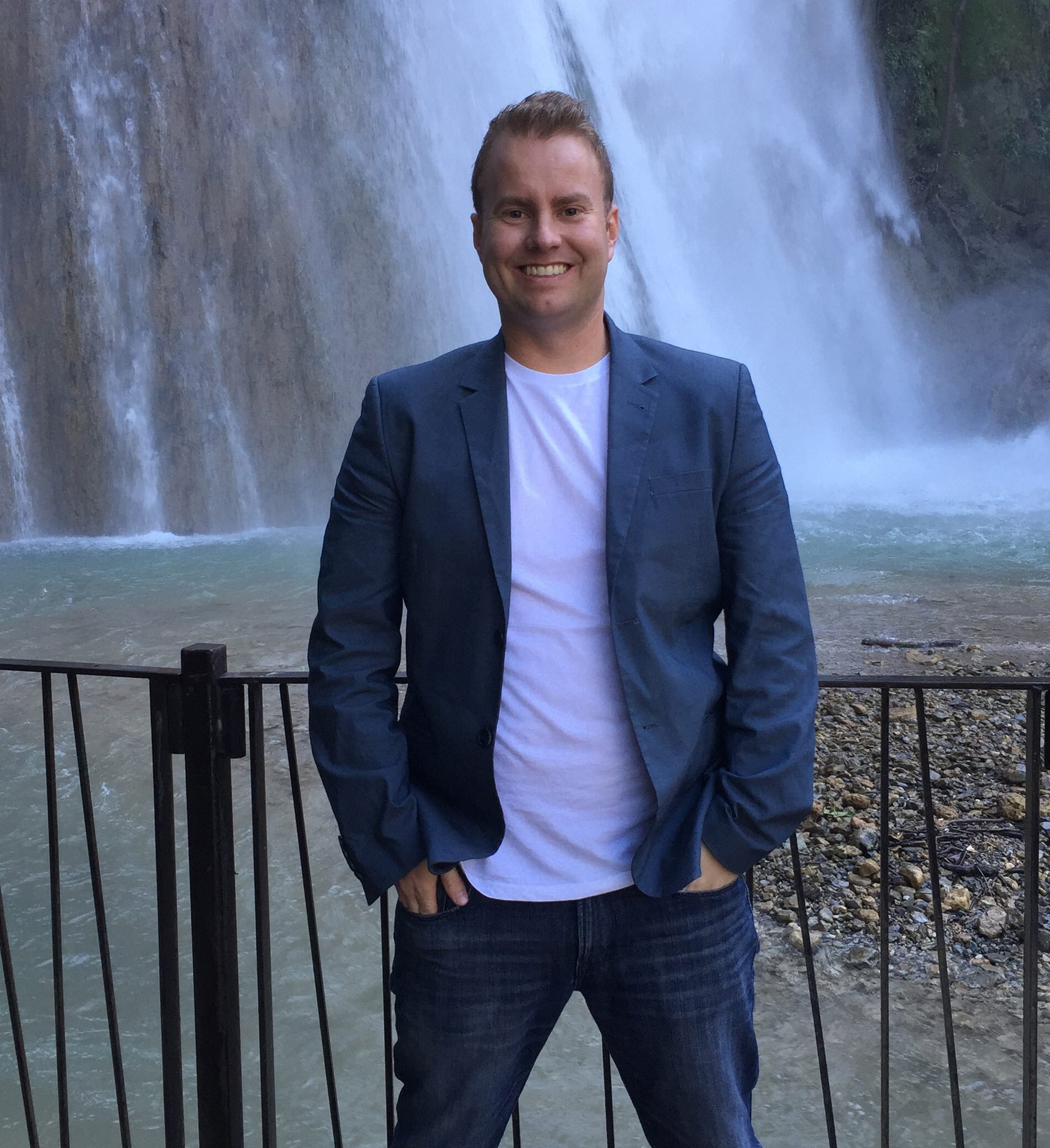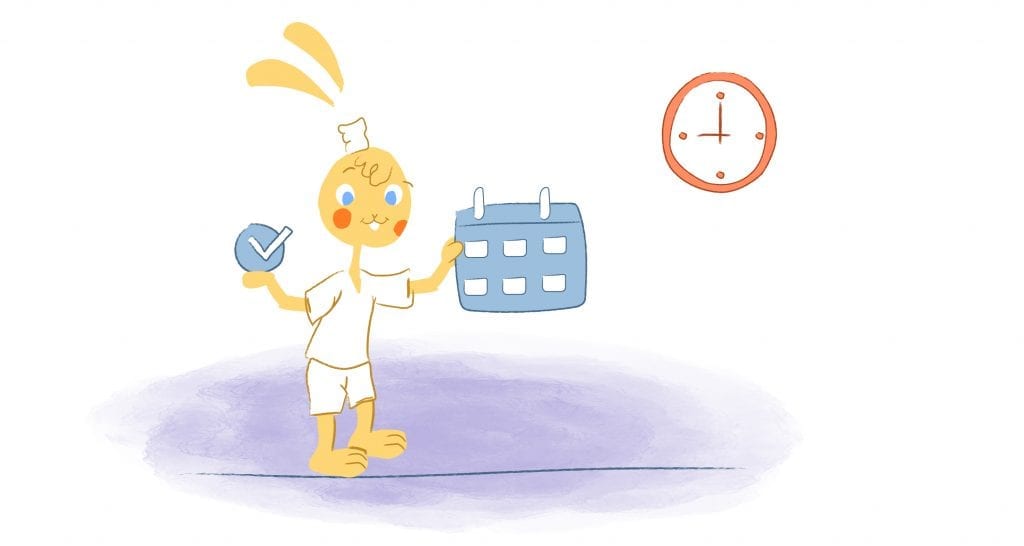Sometimes the conventional wisdom and obvious advice that you’ve heard a million times doesn’t cut it when need a major productivity boost. During these times you might need to think outside the box and use the following 12 productivity hacks to get you back-on-track.
1. Work when you’re most effective.
“Everyone has times of the day when they are more efficient. They also have times of the day when they tend to drag their feet,” writes Max Palmer in a previous Calendar article. “If you want to maximize your effectiveness throughout the day you need to identify your peak hours.”
After you’ve identified when you’re more effective, “it’s time to optimize your schedule,” adds Max. “The tasks that require the most concentration need to be taken care of when you’re at your best.”
For example, if you’re at your peak between nine am to noon, and you’re a freelance writer, then that’s when you should writing your most important, challenging, and undesirable assignments.
Once you’ve eaten that frog, you can tackle those smaller, more enjoyable, and less important writing gigs.
2. Unsubscribe and unfollow.
Our tastes change frequently throughout life. For instance, if you got into Crossfit several years ago you probably started following trainers on social media, signed-up for newsletters and purchased the proper gear and Paleo cookbooks.
Today, however, your body can’t handle Crossfit. Now all of those newsletters and feeds aren’t relevant to you. But, they’re still filling-up your inbox and feed.
Take a couple of minutes to unsubscribe and unfollow newsletters and feeds that are no longer providing you with value. This way you won’t be spending as much time maintaining your email and social accounts since it’s lean and mean.
I would do this at least once a month so that your inbox and social feeds don’t become too cluttered.
3. Work from a communal space.
Most of us can’t focus when there’s a conversation right next to us. You can forget about getting any deep work done when that jackhammer is going to town on the sidewalk in front of your office. As a result, we tend to lock ourselves in a completely silent office.
The fact, however, is that ambient noise can actually make you more productive.
Researchers at the University of Illinois at Urbana-Champaign found ambient noise of 70 decibels increased productivity more than relative quiet.
So if any communal spaces are open in your local area, these can help you be more productive. Even if it’s somewhere with an outdoor patio, when the weather is warmer of course, you would be able to space out and enjoy the outdoors while also getting some work done.
4. Use a treadmill desk.
I’m sure you’ve heard a lot of people raving about the benefits of standing desks. But, how about you take that to the next level with a treadmill desk?
Researchers at the University of Queensland found that standing up while you work and walking on a treadmill desk reduces stress and boosts productivity.
Lead researcher Nicholas Gilson, an associate professor with the university’s School of Human Movement and Nutrition Sciences, said in a press release, “We found people who use activity-promoting desks were more able to focus on urgent tasks, avoid non-urgent tasks and manage stress better than people sitting at a desk all day.”
Dr. Gilson added, “The workers who used sit-stand or walking desks allocated attention most effectively and had lower levels of cortisol – known as the “stress hormone” – in their saliva.”
You can purchase a new treadmill desk, like the LifeSpan TR1200-DT5, on Amazon for just over $1,500. You could also purchase workstation to go with your existing treadmill or, if you’re creative, you can probably build your own for a couple of hundred bucks.
5. Create a mini-crisis.
I wouldn’t recommend doing this all-of-the-time, but there are moments when we work best under pressure. Let’s say you told your family you’d take the week off of work for a staycation. You want to spend that time giving 100% of your attention to your family. I can guarantee that the week leading up to your staycation you’re going to be hustling so that you don’t have to worry about work on your time off.
You can recreate this sensation by blocking out less time than you think you’ll actually need to complete a task. Instead of blocking out three hours for writing, cut it down to two. Instead of an hour dedicated to emails, spend only 30-minutes. You’ll be surprised at how much more you’ll get accomplished when you have less time to spend on a specific task.
6. Sleepless.
This doesn’t mean that you should only get four hours of sleep per night. After all, quality sleep ensures that you’ll have enough energy to make it through the day.
This means that you don’t need to sleep for eight or more hours every night.
Clinical studies show that we only need 6 to 7 hours of sleep. Imagine what you can do with that extra hour or two of time instead of sleeping.
7. Optimize your workspace.
It’s no secret that maintaining a proper workspace boosts productivity, creativity, and energy. But, how many of us actually take the time to optimize our workspaces?
You can start today by making these quick workspace changes:
- Invest in ergonomic furniture — particularly your office chair. It can be a bit pricey, but it’s worth it if you want to become more efficient while remaining comfortable.
- Clean and organize your workspace. This means putting stacks of paper away, cleaning-up messy computer cables, and placing everything back where they belong so you can find them when needed.
- Locate your workspace to a spot where you’re exposed to natural light. If there aren’t any sunny spots, purchase a full spectrum light.
- Put some live plants in your workspace. They purify the air and come with psychological benefits that can boost productivity.
- Face your workspace towards the door. Having your back to the door can make you feel insecure.
I’d also add that you set your workspace to the right temperature. Researchers at Cornell have found that offices, where temperatures were 68 degrees Fahrenheit or lower, made 44 percent more mistakes. Offices at optimal room temperature, which is around 77 degrees Fahrenheit, made fewer errors.
8. Listen to the right kind of music.
As mentioned above, white noise can increase your productivity. This also includes music. In fact, according to research from Dr. Teresa Lesiuk, those who listened to music while working not only completed their tasks faster, they also had better ideas.
The caveat here is that you have to listen to the right type of music. This includes classical, ambient soundtracks, video game music, epic music, and the sounds of nature.
Focus@Will is a handy app that can boost your productivity by finding the right music to help you focus more.
9. Take a cold shower.
This may seem a little out there. But as noted by researchers at the Academic Medical Centre in Amsterdam, “Cold bathing is a common custom in many parts of the world.” In fact, humans have experimented with water temperature variation for centuries. “In ancient times, Roman bathing was based around the practice of moving through a series of heated rooms culminating in a cold plunge at the end.”
Modern research has found that taking a cold shower can strengthen your immunity and circulation, help you recover after exercise, and make you more alert and energized.
This doesn’t mean you have to take a 5-minute shower in freezing water either. You can start off with a warm shower and follow that by a 30, 60, or 90-second blast of cold water to get your day started.
10. Hydrate.
If you want to be at peak productivity, then you need to be fully hydrated.
It’s been found that even just a one percent drop in hydration can result in a 12 percent reduction in productivity! A three or four percent drop in hydration can lead to between 25 percent to 50 percent reduction in productivity.
To stay fully hydrated, make sure that you’re drinking at least two liters of water daily. Make sure to update this in your academic calendar as well!
11. Know exactly how long your breaks should be.
This may sound counter-intuitive, but we need to take breaks throughout the day. But, as As Tony Schwartz, CEO of The Energy Project, perfectly explains, “Without any downtime to refresh and recharge, we’re less efficient, make more mistakes, and get less engaged with what we’re doing.”
Studies have found that in the morning we can stay focused on a task for around 90 minutes before we start to lose focus. As such, we should then take a 20-minute break every 90 minutes. That makes sense it follows our natural body rhythms.
In the afternoon though, we should use the Pomodoro Technique where you work in 25-minute chunks and then take a five-minute break. When the fourth time comes around you take a 25-30 minute break. This works better in the afternoon since our biological rhythms have stabilized.
If that’s too much too figure out, break for 17 minutes every 52 minutes throughout the day. The idea is that we need frequent breaks throughout the day in order to stay focused and energized throughout the day.
12. Declutter your Calendar.
Do you wake-up in the morning, look at your calendar, and become instantly stressed? It’s probably because you’re calendar is too cluttered. And when you have too much planned in one day, it’s impossible to accomplish everything that needs to get done.
Take the time to clear the clutter from your calendar by:
- Every night review your calendar and select only your top 3 priorities for tomorrow.
- Review all of your recurring events and commitments. Some of these may no longer be valuable or fit into your schedule and may need to be removed.
- Stop filling your calendar with tasks that only take a minute of your time.
- Share your calendar with others so that everyone knows your availability.
- Keep a separate calendar for work so that you’re calendar isn’t jam-packed with work and personal entries.
- Stop saying “yes” to every request and invite.
- Use a scheduling assistant, like Calendar, to eliminates those back-and-forth communications when scheduling appointments.
12 Productivity Hacks You Probably Aren’t Using was originally published on Calendar by John Rampton.


